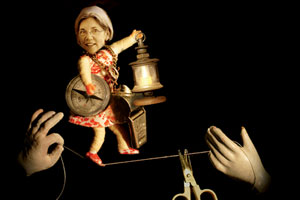On Monday, a top congressional Democrat became the latest person to cast doubt on the potential nomination of Elizabeth Warren, the bailout watchdog and ardent consumer advocate, to lead the new Consumer Financial Protection Bureau. The CFPB is a centerpiece of the Dodd-Frank financial reform bill that passed the Senate last week and is due to be signed into law as early as this week.
Appearing on The Diane Rehm Show on NPR, Sen. Chris Dodd (D-Conn.), one of Congress’ architects of financial reform, was somewhat skeptical on whether Warren—who’s also a Harvard law professor—would win the approval of enough US senators to allow her to take over the bureau. “The question is, ‘Is she confirmable?’ There’s a serious question about it,” Dodd said. Dodd’s comments aren’t the first doubts that have been raised about Warren’s viability as a nominee. Last Friday, the Huffington Post reported that Treasury Secretary Tim Geithner opposed Warren as CFPB chief. While the Treasury department quickly issued a statement that “Secretary Geithner believes that Elizabeth Warren is exceptionally well qualified to lead the new bureau,” the signs are clear that a fresh controversy—is Washington ever without one?—is brewing.
As MoJo‘s DC Bureau chief David Corn wrote today, appointing Warren does have clear political risks. But it could also provide a much-needed boost to the Obama administration:
That might be Geithner’s best argument against Warren: The banks and many Senate Republicans do not like her, and a Warren nomination could turn into a battle royal, akin to a contentious Supreme Court fight. But this is also an argument for Warren.
Presently, Obama’s economic policies are made and sold by people like Geithner and Lawrence Summers, Obama’s chief economic adviser. How many Americans really believe these guys are looking out for them? The president’s economic team is short on non-Wall Streeters who can connect with folks at home. Placing Warren in a high-profile position would show that Obama recognizes that protecting American consumers is as important as bailing out big banks and auto companies. He would be adding a vital and clear voice to his administration. And in an election season—when Obama cannot do much to create 8 million jobs to make up for the ones lost before and after he became president—waging a fight against the banks and GOPers on behalf of a passionate consumer advocate would have political benefits.
















